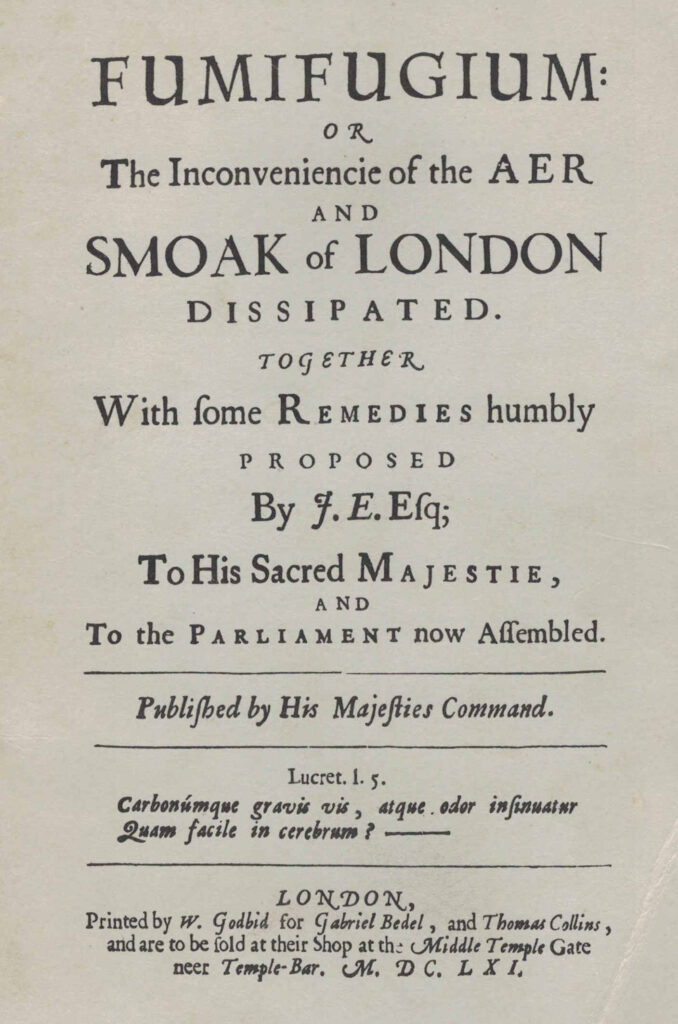
 |
In 1660, Self-Denial Was All the Rage |
Post Reply 
|
| Author |
 Topic Search Topic Search  Topic Options Topic Options
|
reaper 
Admin Group 
Joined: 27 Jan 2022 Status: Offline Points: 367 |
 Post Options Post Options
 Thanks(0) Thanks(0)
 Quote Quote  Reply Reply
 Topic: In 1660, Self-Denial Was All the Rage Topic: In 1660, Self-Denial Was All the RagePosted: 30 Aug 2023 at 12:18pm |
In 1660, Self-Denial Was All the Rage to Stop Extreme Weather. Sounds Familiar?In my endless quest to be open-minded and well-informed I turned to the Guardian today and landed on this story by it Environment Editor Damian Carrington with the apocalyptic headline ‘Dramatic climate action needed to curtail ‘crazy’ extreme weather‘. No great surprise. There’s a similar story every day. That’s quite a title isn’t it? Nine words only, but he’s managed to jam in ‘dramatic’, ‘action’, ‘crazy’ and ‘extreme’. Perhaps he used to be on a sports newsdesk, the crucible of journalistic cliché-packed writing. But that’s nowhere near as impressive as the 15 uses of the word ‘said’, each time following an individual scientist or ‘scientists’. ‘Scientists have said.’ What sort of science is ‘scientists have said’? Lots of things have been said in human history and most of them arrant nonsense. Here’s one of the examples: “The ‘crazy’ extreme weather rampaging around the globe in 2023 will become the norm within a decade without dramatic climate action, the world’s leading climate scientists have said.” What does that mean? Adjust the word order and it reads “leading scientists have said the ‘crazy’ extreme weather will become the norm within a decade”. In other words, these geniuses know the future, a preposterous conceit they share with untold numbers of soothsayers, religious fanatics, demagogues, and lunatics, and how to change it. All you have to come out with is ‘scientists have said’ and suddenly the piece is imbued with pseudo-credibility. Read on and of course the only possible route to evading Armageddon is zero consumption of fossil fuels. Not one piece of evidence is cited in the whole article, as usual. Of course, the proponents will evade being proved wrong or right since even if we did stop using fossil fuels overnight we’ll have to wait 200-300 years before we’ll know; and even then cause and effect will be impossible to prove. Let’s go back a few years to when there were ever so slightly fewer fossil fuels being used. John Evelyn (1620-1706) was a founding member of the Royal Society. He wrote a diary, little known today but filled with gems, such as these (I’ve modernised the spelling):
 At least Evelyn knew the shapes of the hailstones were just imaginary, but he was equally confident about who was to blame as we shall see.
Horror of horrors, the winter of 1661-2 was exceptionally warm! Obviously global warming started before any of us realised. Luckily, the Charles II’s Government had a knee-jerk magic response up its sleeve:
Sounds familiar? All they had to do was go without food for a bit and bingo! Problems over. This self-denial brought a divine reward in God alleviating the vile and unseasonably warm weather. Sadly, the effects were short-lived. Evelyn was a very religious man. He knew where to point the finger. He thought Charles II’s Restoration Court, which came into being in 1660, was the epicentre of decadence:
The point here of course is that any extreme weather, any perceived aberration from the norm, will do as evidence for the sins of man and which therefore requires self-flagellating, punitive, remedial action, together with the delusional belief that we have the power to change the climate through our actions. And it wasn’t only precarious winters:
It didn’t get any better, even once Charles II was dead (he died in 1685):
Things went from bad to worse:
Goodness me! Why it could be 2023, could it not. Despite there not being a diesel car in sight. After another storm in November 1703, Evelyn, by then aged 83 could only ruminate in despair:
If I didn’t know better, I’d have thought he’d spent too much time on the BBC website. There is no question that a couple of episodes like the ones Evelyn describes could be effortlessly transported to modern times for rags like the Guardian and its tireless environment hacks to pounce on. I could have supplied here dozens and dozens of other examples just from his writings alone. Don’t misunderstand me. I am all for cheaper, more efficient, less polluting ways of improving the way we live. I’ve got solar panels and batteries for crying out loud (monthly direct debit for electricity now £15, thank you very much and installation costs all paid off). But a panic-stricken religious crusade will get us nowhere apart from making a small number of people an astronomical amount of money. What amazes me most of all is the sheer lack of personal awareness exhibited by so many climate scientists about how they present their competitive apocalypticism. On a more serious note, this is what they can do to people’s minds. This tragic story from four years ago is about how climate anxiety became the tag for some women with postnatal depression to tag their despair to. Here’s one of them:
And I’m not being glib. For personal family reasons I know how devastating PND can be. These women, however, are only the tip of the psychological damage being wrought on people almost everywhere. Lionel Shriver wrote a brilliant piece in the Sunday Times the other day called ‘Blaming Climate Change for everything is lazy‘. In it, and she’s not even arguing against the idea that we are causing climate change, she says, “We’re contriving hugely consequential policies in a state of hysteria… wrong answers at scale could bring on catastrophe of a different kind”. Indeed. If we rush in, in a state of hysteria, the next thing we’ll discover is that our ‘solutions’ either don’t work at all or make an unstable ever-changing world worse. That’s unlike Charles II’s fast which would only have made everyone famished for a day or two. And finally, John Evelyn was ahead of his time. In 1661 he produced a tract called Fumifugium, all about getting rid of London’s “presumptuous smoke” with his own version of a Ulez. His solution, just like London’s expanded Ulez, was to move the sources of pollution somewhere else, in Evelyn’s case by relocating London’s filthy industries five to six miles downriver, though no-one ever took any notice.  He had another idea too, which was to demolish “poor and nasty cottages near the City” for being an eyesore opposite the palace at Whitehall, and turn the sites into gardens to improve the atmosphere. As for those whose homes and livelihoods would be ruined, he didn’t give them a thought. But he could afford not to, as he wandered past the mulberry tree in his celebrated gardens at Sayes Court in Deptford. Do you remember the movie Three Days of the Condor (1975)? This is from near the end:
Guy de la Bédoyère is the editor of an edition of The Diary of John Evelyn (Boydell 1995), The Writings of John Evelyn (Boydell 1995), and The Correspondence of Samuel Pepys and John Evelyn (Boydell 1997). |
|
 |
|
| Sponsored Links | |
 |
|
Post Reply 
|
|
|
Tweet
|
| Forum Jump | Forum Permissions  You can post new topics in this forum You can reply to topics in this forum You cannot delete your posts in this forum You cannot edit your posts in this forum You can create polls in this forum You can vote in polls in this forum |